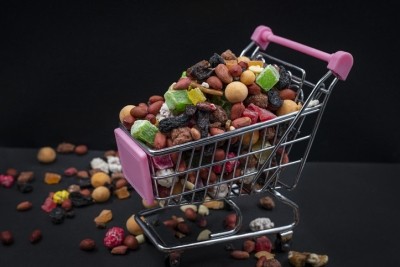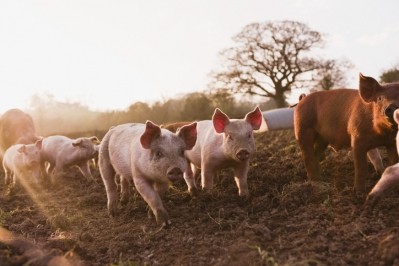World experts talk resource efficiency and feed protein innovation

That was one of the conclusions of FeedNavigator’s inaugural face-to-face event, Feed Protein Vision, which took place earlier this week in Amsterdam.
Looking forward to what promises to be an excellent final day at the Feed Protein Vision conference. 1st up is a talk about moving Europe towards self sufficiency in animal feeds. #ProteinVisionpic.twitter.com/yJrsQmba3r
— Devenish (@DevenishNutri) 7 March 2018
Delegates attending Feed Protein Vision came from as far away as Japan and the US, while others were drawn from the Netherlands, Germany, Belgium, France, Switzerland, Ireland and the UK, among other countries.
Looking at other key findings from the one and a half day conference, we see that maintaining a high level of feed efficiency and animal welfare will also be important considerations as the protein debate continues.
SusPig has been presented at Feed Protein Vision 2018 in Amsterdam #ProteinVisionpic.twitter.com/Hy7cNSsTVD
— SUSPIG (@SusPigNet) 9 March 2018
Innovation is happening in novel protein technologies, and it is being backed by large agribusiness players. However, the producers must show real scalability of these new proteins in order to attract investors, and for the industry to buy into them.
Heckmann making the case for insect production - low water need, 5x better feed efficiency, low land requirement and low emissions #ProteinVisionpic.twitter.com/RMhuHelN60
— Ermias Kebreab (@ErmiasKebreab) 6 March 2018
Some of the delegates anticipated EU authorization for insect feed protein use in poultry and pig diets in 2019; it was stressed that feed grade raw materials must be used to rear insects to encourage EU feed industry interest in such a protein source.
Insects are now allowed as feed in aquaculture and possibly soon for poultry and pigs in Europe opening for opportunity for insect industry. #ProteinVisionpic.twitter.com/cMlikwfgCb
— Ermias Kebreab (@ErmiasKebreab) 6 March 2018
The feed industry needs flexibility, so alternatives must be as cost effective as traditional protein sources. There could be challenges with unwanted contaminants in new feed ingredients, and a lack of knowledge about their use at certain life stages.
Crude protein reduction through amino acid fortification is certainly effective, and while relatively well established in Europe and North America, such a feeding strategy is beginning to be adopted in China and other Asian markets.
John Htoo from @Evonik presents a low protein diet concept according to animals’ needs to increase nutrition efficiency and to minimize environmental impact of pig production #proteinvisionpic.twitter.com/lneQJjDZek
— Sabine Bonneck (@sabinebonneck) 6 March 2018
The merits of greater resource efficiency - of feeding Norwegian and Scottish salmon processed animal proteins (PAPs) - was also weighed up at the event.
Our panelist’s and providing great insight into the use of processed animal protein in farmed fish #ProteinVisionpic.twitter.com/wTGW3rvdvZ
— FeedNavigator (@FeedNavigator) 7 March 2018
A bridging workshop between the feed and food protein conferences, which actively involved delegates from both, included insight from McDonalds, WWF and retailers on why sustainable feed matters.
Our shoppers want to know where their food comes from *and* where the animal feed comes from, per @jemkj of @waitrose#ProteinVisionpic.twitter.com/Q7wG5sxwML
— FoodMinds (@FoodMinds) 7 March 2018
In summary, the presenters and delegates at Feed Protein Vision indicated the more options the industry has to choose from in terms of protein supply, in order to ensure aquaculture and livestock are more sustainable, economically and environmentally, in the future, the better.
However, they said it would be the market that decides which of those fishmeal or soy substitutes are the best fit.
Tune in next week and beyond for our selection of video round-ups from Feed Protein Vision.
. @AllanLeBlanc from @FeedKind welcomed a full table to hear the latest research on microbial proteins and animal health at @FeedNavigator#ProteinVision today. Don’t worry if you missed out, you can learn more about #FeedKind by heading to https://t.co/wtKk2uEsWr . pic.twitter.com/1UvG07ayCm
— Calysta (@FeedKind) 7 March 2018













